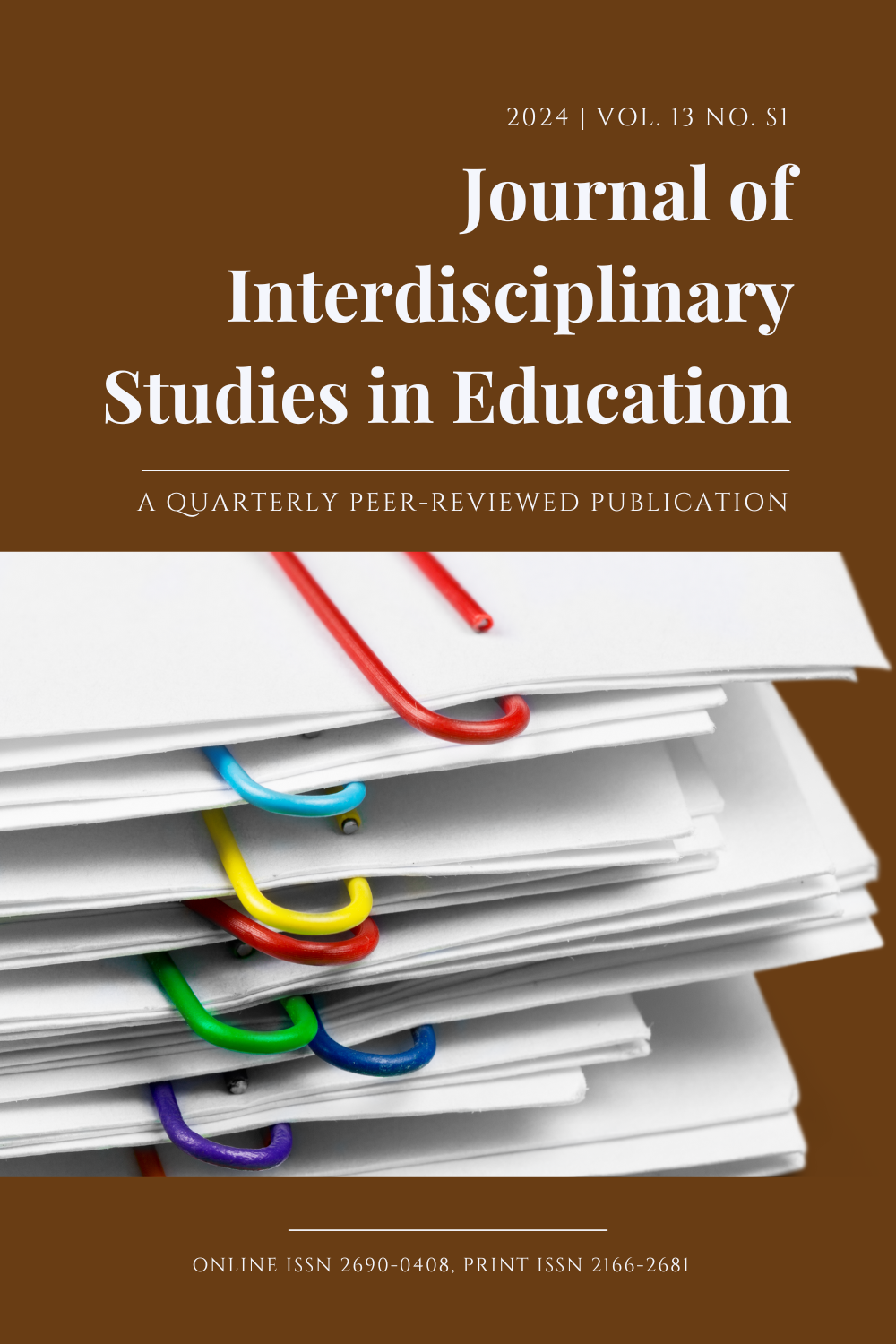Correlation between teacher competence and the self-efficacy of secondary school teachers
DOI:
https://doi.org/10.32674/dwwk6537Keywords:
Assessment skills, Content knowledge, Job performance, Pedagogical property, Teaching efficacy.Abstract
The purpose of this study was to compare the different levels of teacher competence and self-efficacy among secondary school teachers. A comparative survey method for descriptive research was used. A total of 147 secondary school teachers were selected through a random sampling method. Analysis of variance was used for data analysis. The key finding of this study is that among male and female teachers with high, moderate, and low competency levels, there are no significant differences in self-efficacy. Government teachers show no significant differences in self-efficacy with respect to their competence levels, but private teachers show an apparent pattern. Private teachers differ only in terms of high and low levels of self-efficacy; neither high nor medium self-efficacy levels differ from one another.
Downloads
References
Alibakhshi, G., Nikdel, F. & Labbafi, A. (2020). Exploring the consequences of teachers’ self-efficacy: a case of teachers of English as a foreign language. Asian. J. Second. Foreign. Lang. Educ. 5, 23. https://doi.org/10.1186/s40862-020-00102-1
Ashton, P. T., & Webb, R. B. (1986). Making a difference: Teachers’ sense of efficacy and student achievement. New York: Longman.
Bandura, A. (1977). Self-efficacy: Toward a unifying theory of behavioral change. Psychological Review, 84(2), 191-215.
Bandura, A. (1997). Self-efficacy: The exercise of control. Freeman.
Bhatt, P., & Rao, M. (2024). The role of classroom management in enhancing teacher self-efficacy: A quantitative analysis. Journal of Teacher Education Research, 45(2), 178-189.
Devi, H. R. P., Kurniawan, R. Y., & Majid, M. Z. B. A. (2023). Self-efficacy, teaching practice, and teacher readiness: Mediating role teacher interest. International Journal of Emerging Research and Review, 1(3). https://doi.org/10.56707/ijoerar.v1i3.39
Gupta, R. (2024). Teacher competence and self-efficacy: Exploring the connection in secondary education. Indian Journal of Educational Psychology, 29(1), 98-110.
Guskey, T. R. (1988). Teacher efficacy, self-concept, and performance: A research synthesis. Educational Research Quarterly, 12(2), 2-17.
Hattie, J. (2008). Visible learning: A synthesis of over 800 meta-analyses relating to achievement. Rutledge.
Handrianto, C., Jusoh, A. J., Rashid, N. A., Wahab, S., Abdullah, A., Hasan, M. K., & Rahman, M. A. (2024). Teacher’s self-efficacy and teaching competency of Malaysian secondary school teachers in drug education. International Journal of Instruction, 17(2), 219-236. https://doi.org/10.29333/iji.2024.17213a
Hoy, W. A. (2019). Educational psychology (5th Ed.). Pearson.
Hoy, W. A., & Spero, R. B. (2005). Changes in teacher efficacy during the early years of teaching. Journal of Educational Psychology, 97(4), 688-708.
Kaur, N. & Kaur, H. (2022). Study of teaching competence in relation to self- efficacy among secondary school teachers. Scholarly Research Journal for Humanity Science and English Language, 10(52). Doi: 10.21922/srjhsel.v10i52.11511
Lauermann, F., & ten Hagen, I. (2021). Do teachers’ perceived teaching competence and self-efficacy affect students’ academic outcomes? A closer look at student-reported classroom processes and outcomes. Educational Psychologist, 56(4), 265–282. https://doi.org/10.1080/00461520.2021.1991355
Marcano, B., Romero, M.D.C., & Buzon-Garcia, O. (2022). Socio-emotional competence and self-efficacy of future secondary school teachers. Education Sciences, 12(3), 161. Doi: 10.3390/educsci12030161
Marsh, H. W. (1990). Causal ordering of academic self-concept and academic achievement: A multi-wave, longitudinal panel analysis. Journal of Educational Psychology, 82(4), 646-659.
Meiyanti, F., Hardienata, S., & Hidayat, N. (2022). The Correlation between self-efficacy and pedagogic competence with teacher teaching effectiveness. Pedagonal Jurnal Ilmiah Pendidikan, 6(1), 107-119. Doi: 10.55215/pedagonal.v6i1.4935
Orakci, S., Yuregilli Goksu D., & Karagoz,S. (2023). A mixed methods study of the teachers’ self-efficacy views and their ability to improve self-efficacy beliefs during teaching. Frontiers in Psychology,13. https://doi.org/10.3389/fpsyg.2022.1035829
Phaik I. K., Peng, F. C., & Hutagalung, F. D. (2023). Teacher self-efficacy as a mediator of the relationship between emotional competence and preschool teachers’ commitment. Journal of Nusantara Studies, 8(2), 1-26. http://dx.doi.org/10.24200/jonus.vol8iss2pp1-26
Ramakrishnan, R., Salleh, M.N., & A, Aliza. (2022). The relationship between teaching style, self-efficacy, and competency in vocational special education teachers. Akademika, 92, 81-94. Doi: 10.17576/akad-2022-92IK1-07
Sharma, K., & Patel, R. (2024). The impact of mentorship on teacher self-efficacy in secondary schools. Mentorship in Education Journal, 16(2), 149-160.
Skaalvik, E. M., & Skaalvik, S. (2010). Teacher self-efficacy and job satisfaction: The mediating role of perceived social support and sense of coherence. Journal of Educational Psychology, 102(4), 814-829.
Tschannen, M., & Hoy, W. A. (2001). Teacher efficacy: Capturing an elusive construct. Teaching and Teacher Education, 17(7), 693-705.
Yang, X., & Du, J. (2024). The effect of teacher self-efficacy, online pedagogical and content knowledge, and emotion regulation on teacher digital burnout: a mediation model. BMC psychology, 12(51), 1-13. https://doi.org/10.1186/s40359-024-01540-z
Yim, Eunice. (2023). Self-efficacy for learning beliefs in collaborative contexts: relations to pre-service early childhood teachers’ vicarious teaching self-efficacy. Frontiers in Education,8. Doi:10.3389/feduc.2023.1210664
Additional Files
Published
Issue
Section
License
Copyright (c) 2024 Jyoti Shukla

This work is licensed under a Creative Commons Attribution-NonCommercial-NoDerivatives 4.0 International License.







